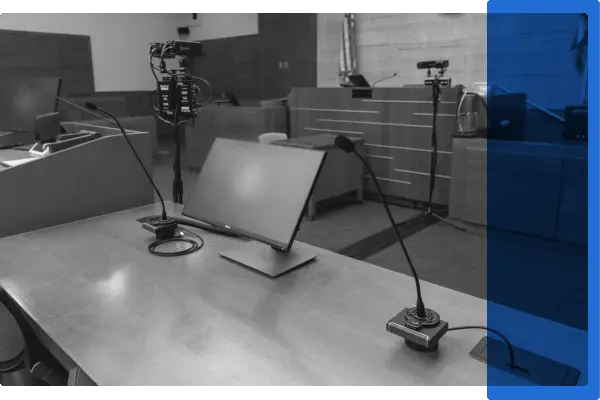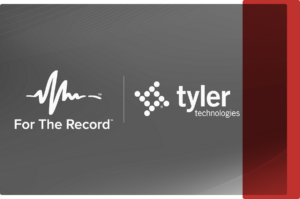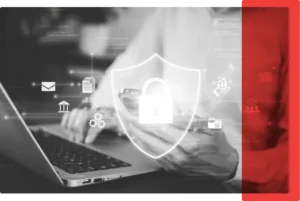
22 Apr
2024
In the Pursuit of “Just, Speedy, and Inexpensive” Resolution of Cases
When legal proceedings are not preserved, it has a significant, adverse effect on litigants’ ability to meaningfully appeal decisions or revisit what occurred in court. In jurisdictions simultaneously contending with a shortage of court reporters and laws restricting the use of digital recording technology, it is increasingly common for courts to forgo capturing any official record.
Providing a court record for further use by judiciary, attorneys, and litigants is a fundamental aspect of the administration of justice—one that should not only be accessible to those with the financial means to personally hire a stenographer.
The Californian Context
S.B. 662, a bill aimed at removing California’s prohibition on electronic recording in civil family, juvenile justice, and dependency cases disappointingly did not get called for a vote by the Senate Appropriations Committee earlier this year due to significant pushback from unions representing stenographers.
The bill would have provided an alternative method of capturing court records when stenographers were not available—a situation increasingly becoming more prevalent across Californian counties. Courts are struggling to address stenographer vacancy rates, despite the introduction of sizeable financial incentives and increased recruitment initiatives across the state.
-
A real shortage.
According to a March 2023 fact sheet prepared by the Judicial Council of California, the State employs around 1,200 full-time court reporters. It needs an estimated 650 additional full-time court reporters to meet minimum requirements, yet this highly specialized labor pool shrinks every year.
-
Active recruitment.
Approximately 74% of Californian jurisdictions are actively recruiting for court reporters, with some offering signing bonuses of up to $50,000 and base salaries of up to $125,000. In January 2024, the San Francisco County Superior Court had 15 vacancies and was unable to hire any court reporters in 2023, despite offering a $30,000 signing bonus.
-
Impact.
In 2023, an estimated 330,000 civil and family proceedings in California’s largest jurisdiction alone—Los Angeles County—will not have an official record.
-
Access to justice.
Civil litigants must hire a private court reporter—at a cost of up to $4,000 per day—to effectively preserve their right to appeal. This is an unjust burden for litigants, especially for those who are self-represented or do not have the financial means to do so. Californian litigants who have filed a fee waiver in a timely manner are legally entitled to a court reporter and transcript at no cost—but this cannot occur if there is nobody available to fill the request.
-
Self-represented litigants.
The Los Angeles Superior Court’s 2022 biennial report shows that 60% of court users earn less than $50,000 annually. These individuals are more likely to self-represent in civil matters, putting them at a greater disadvantage when it comes to navigating the legal system and understanding the importance of an official record.
-
Calls from courts
From executive directors of over 50 county courts to presiding judges, there has been significant support for introducing measures to ensure access to justice, but the benefits provided by digital recording methods have been overlooked.
-
Statutory requirements across courts
While there are statutory requirements to provide court reporters in felony criminal, juvenile justice, and dependency cases, the same does not apply for civil, family, probate, misdemeanor criminal, and traffic law. This means people in especially difficult situations, such as domestic violence victims, are put further at risk if they cannot access the court record.
Catching up to other jurisdictions
Stenographers have argued that digital recording technology is inferior, but this claim is challenged by the successful and widespread use of multi-channel, high-fidelity audio and video recordings—along with cloud storage—in many jurisdictions globally and across the United States.
Advanced digital recording systems offer a reliable and efficient solution for capturing legal proceedings, providing a comprehensive record that can be easily accessed, reviewed, and referenced as needed. Importantly, these systems reduce the reliance on an individual who possesses the only version of the record that is unique to their own writing form and stored in a personal storage location.
In the 2023 Year-End Report on the Federal Judiciary, Chief Justice John Roberts noted, “Rule 1 of the Federal Rules of Civil Procedure directs the parties and the courts to seek the “just, speedy, and inexpensive” resolution of cases.” Statutory constraints limiting the use of technology that is bridging significant resource gaps in other jurisdictions are ensuring the resolution of cases is not just, speedy, or inexpensive.



